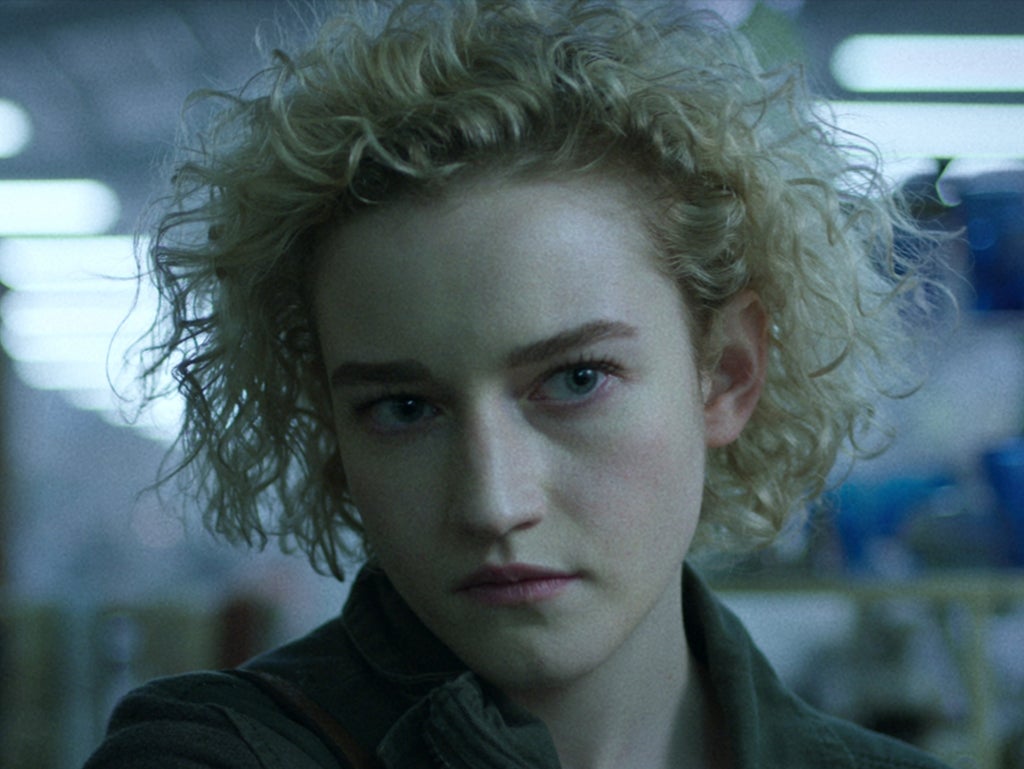
If the premise of Netflix’s hit crime drama, Ozark, seemed simple – a mild-mannered financial advisor moves to rural Missouri to launder $500m of Mexican drug cartel money – then the execution has been anything but. The tale of the Byrdes, Marty (Jason Bateman) and Wendy (Laura Linney), has taken them from victims to perpetrators, and back again, several times. “A middle-class family clinging on for dear life” may have been the elevator pitch, but that elevator now contains more spilled blood than its counterpart in the Overlook Hotel.
As things pick up in this, the final chapter of the Ozark saga, new supremo Javi (Alfonso Herrera Rodriguez) has just murdered local heroin producer Darlene Snell (Lisa Emery) and her young husband, Wyatt Langmore (Charlie Tahan). It is the latter killing that will prove more consequential, lighting the blue touch paper for a tale of revenge and its repercussions. Wyatt’s cousin (and Marty’s estranged protégé) Ruth (Inventing Anna’s Julia Garner) is off to Chicago, apparently willing to ignite all-out war in pursuit of some small justice for one of the few people in the world whose company she could stomach. “Sorry,” Javi had said, as he turned his gun on Wyatt, “whoever you are.” This simple act of mindless psychopathy – an attempt to tie up loose ends – sends the whole business unravelling. Marty cautions Ruth against an attack on Javi: “Everything that we worked for just falls apart.” “Welcome to my f***ing world,” she deadpans back.
As the story of Ozark has unfurled, the two central families – the Byrdes and the Langmores – have become evermore entangled. The Byrdes wanted to get rich; the Langmores wanted to get out of poverty. In the end, neither may have their way – but it’s clear that the natives of the Lake of the Ozarks have paid a far heavier price. You can call it plot armour or just good ol’ fashioned socio-economic bias in favour of white collar workers, but the Byrde family unit is – for now – intact. Ruth, on the other hand, has nobody. “They’re building a whole life that should be ours,” she whispers to the ghost of her murdered cousin, as the Byrdes plot a return to the big city.
Marty, meanwhile, is still scrambling. Flying by the seat of his pants has been his default mode ever since he first unfolded that brochure for the Ozarks retreat. The toll of running the biggest laundromat in North America is weighing on him, as are the intractable strains on his marriage. If he realised long ago that he couldn’t trust Wendy, she still has the capacity to surprise him. “Why did you choose everyone else over your family?” she asks him. “You’re so desperate to be the good guy.” But time, and a rising body count, are against Marty’s attempts to be a better man. As he heads back south of the border, the Byrdes’ options grow ever fewer. The fate that awaited him when he offered to launder half a billion dollars in five years is catching up with him. Reviewing the performances of a show in its fourth and final season is a bit like awarding the Booker Prize to the Dead Sea Scrolls or the Pritzker to Stonehenge. All the same, Bateman and Linney capture the moral ambiguity of their characters with controlled precision, while Garner has grown into the series’ most accomplished performer – and its dramatic heart.
At its inception, Ozark was often compared, unfavourably, with Breaking Bad. It’s hard to believe that there wasn’t a degree of cynicism in its commissioning, but as the seasons have progressed, the show has developed its own, distinctive timbre. The murky waters of the Midwest are somehow less gruelling than the beating New Mexico sun. The creative sensibility too, is more blockbuster: realism in character development is preferred to realism in plot devices. It all builds up to a pressure cooker of a final season, where the cumulative bad choices of generations of Byrdes and Langmores hang over the narrative, like Walter White’s lung scan. Perhaps, in years to come, Ozark will be looked back on without reference to Breaking Bad, but not just yet. If Marty and Ruth feel like Walter and Jesse, then they too are deserving of a blaze of glory in which to go out. The result is an ending that’s unbearably tense, obliquely poignant, and some of the best event TV we’ve seen on any streaming service.







